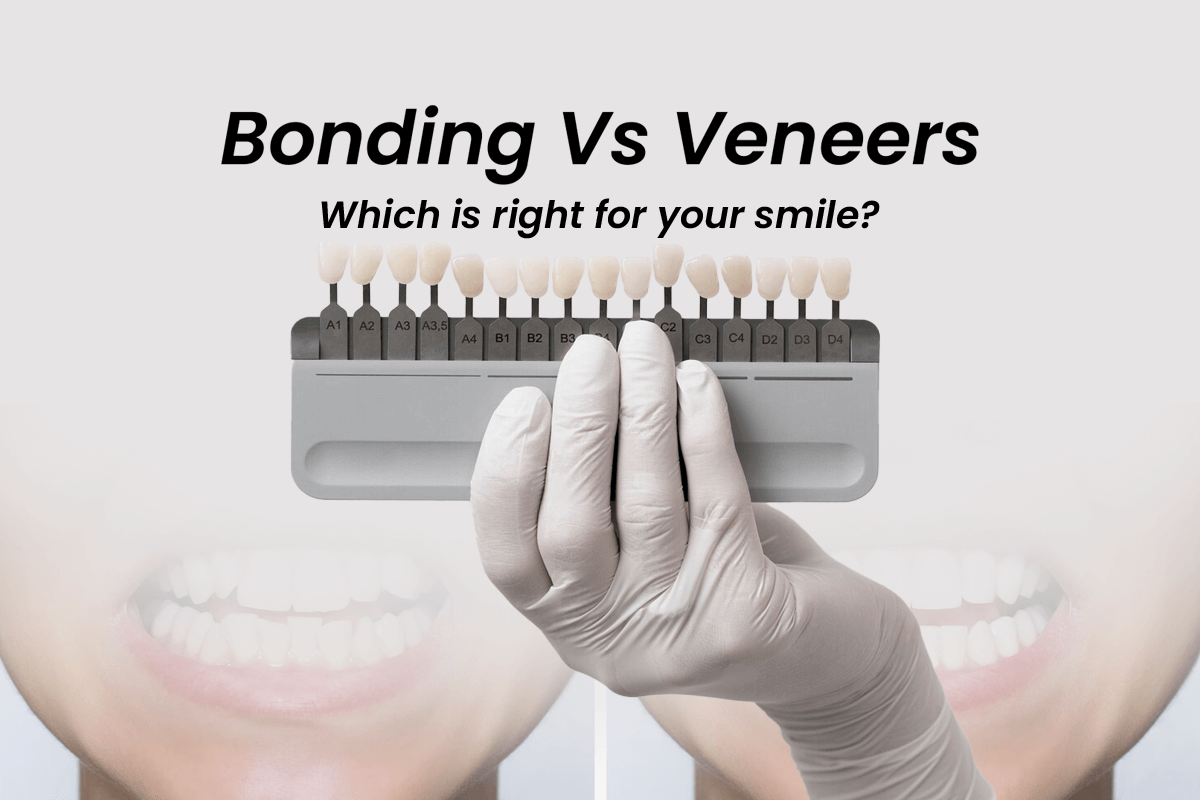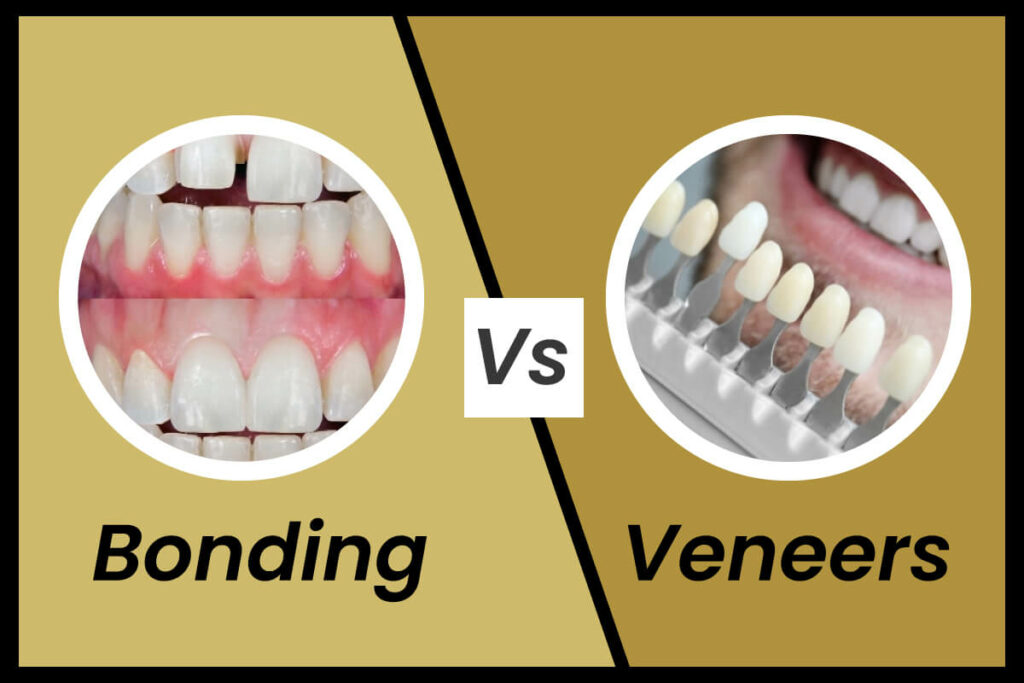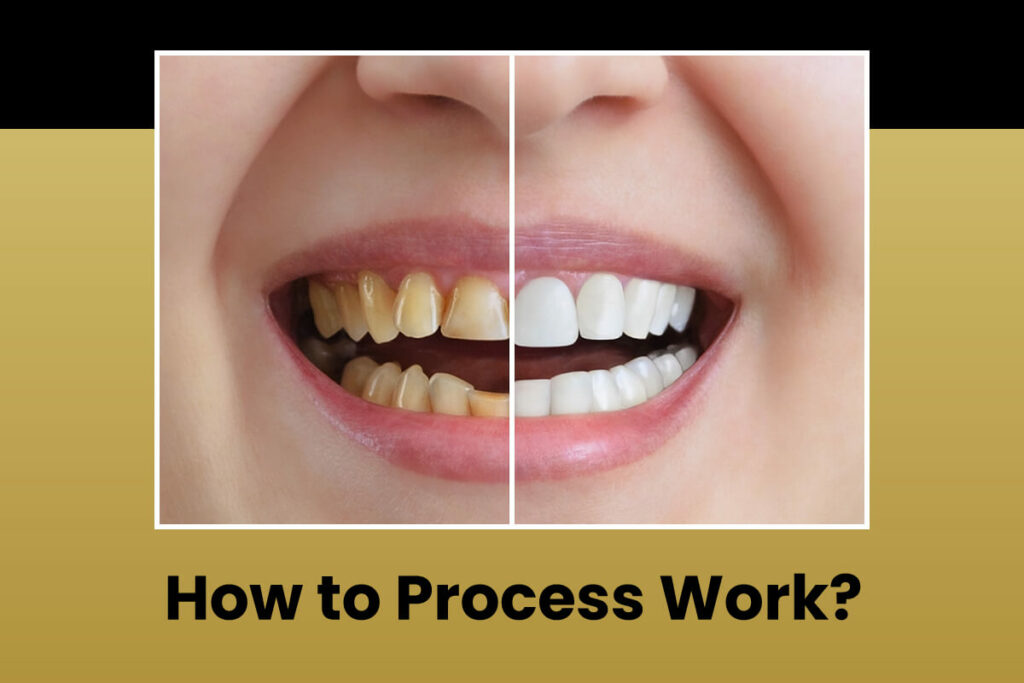Are you looking to have a more vibrant, confident smile, but aren’t sure how to begin? The option of bonding vs. veneers is the most common option for repairing chips or stained teeth. Both are a great option. The team at Olive Tree Dental, offer patients two excellent ways to enhance their smile.
Each has benefits of its own. This article will explain what a dental bonding procedure is, what it’s like compared to veneers, and which could be the most suitable option for your requirements.
Let’s look into the details to make your decision more straightforward.
Bonding vs Veneers:
In terms of cosmetic smiles, bonding and veneers are the two most popular alternatives. Dental bonding is the process of applying a tooth-colored resin that is used to repair tiny flaws such as cracks, chips or gaps.
Veneers are, on the other hand, thin composite or porcelain shells which are used to cover teeth’s surfaces to give them an attractive, uniform appearance. Both are able to improve the appearance of teeth however they differ in the process costs, results, and cost.
Veneers versus composite bonding is usually a choice between quick fixes and longer-term changes. Bonding is quicker and more affordable, whereas veneers provide an extremely durable and stain-resistant surface. Understanding the difference between them can help you in selecting the ideal one for your needs.
What Is Dental Bonding?
It’s a procedure where dentists apply the tooth-colored, soft resin to the tooth, molds it and then hardens it using a specialized light. It’s a great option for minor repairs. It usually requires only 30 to 60 minutes for each tooth. It doesn’t require any major preparation and it’s a cost-effective method to address minor issues.
What Are Veneers?
Veneers are custom-made shells typically porcelain that cover the front of your teeth. They’re made to hide the stains, straighten unbalanced teeth or fill in gaps to give a perfect smile.
The process of getting veneers requires just a couple of visits to first prepare the teeth, and then apply them. They’re more complex, but provide an enduring, natural appearance.
Benefits of Dental Bonding vs Veneers:
Both bonding and veneers offer distinct advantages. Let’s take a look at the advantages of each:
Bonding Benefits:
- Quick and complete in just one visit.
- Costs lower than veneers, typically $200-$500 per tooth.
- There is little or no need for tooth removal, while keeping the natural teeth intact.
- Repairs minor chips, cracks or marks easily.
Veneer Benefits:
- It lasts longer, as long as 5-20 years if you take treatment.
- Better at resisting stains, particularly porcelain.
- Overcomes the bigger flaws to give the uniform, movie-star look.
- Supernatural, resembling real teeth.
The benefits of teeth bonding are an option between easy, cost-effective solutions and long-lasting, high-quality outcomes.
Drawbacks to Consider:
The options aren’t perfect and the choice between composite bonding vs veneers has its own pros and cons. It’s less long-lasting, lasts between 3 and 10 years. It is also susceptible to chipping or discolor as time passes. It’s not ideal for big changes in the teeth or for heavily stained ones. Veneers, although more durable, cost more, between $800 and $2,500 per tooth. They require slicing down some enamel that is permanent.
They also require multiple visits to the lab and laboratory work, which could take weeks. Deciding between veneers versus bonding is based on the budget you have, timeframe and the size of change you’d like to make. Speaking with a dentist from Olive Tree Dental can clarify the most appropriate option for you.
Which Is Best for Your Smile?
Deciding between dental bonding and veneers will depend on your objectives and your lifestyle. Here are some scenarios in which each is a winner:
1. Choose Bonding If:
- Need a quick solution for a chipped or stained tooth.
- Cost is an issue, and you're looking for a low-cost solution.
- You'd prefer a less painful procedure that does not require enamel removal.
- Minor flaws, such as small cracks or gaps, are the most significant problem.
2. Choose Veneers If:
- You're looking for a long-term solution to get a perfect smile.
- Teeth with crooked or severe stains or bigger gaps require cover.
- Stain resistance and durability are the top priorities.
- You're fine with a higher cost and more visits.
For instance, someone who has one chipped tooth due to an accident might opt for composite bonding as a quick cost repair. For those with a number of discolored or uneven teeth may opt for veneers to get an entire smile overhaul.
How the Process Works?
Bonding Process
What does the process of bonding your teeth in Olive Tree Dental? The dentist cleanses the tooth, then applies a resin that matches the color of your tooth and forms it so that it appears natural.
A special light cures the resin and a quick polishing makes it blend in seamlessly. The whole process typically takes less than one hour per tooth, and no need to numb the area unless it is for treating a cavity.
Veneer Process
Veneers go through further steps. The dentist will remove a small coat of enamel. He makes impressions and sends them to a lab that will create custom-designed veneers. Temporary veneers may protect the teeth of your patients while they have to wait.
On the next appointment, the dentist will bond the veneers to your teeth to ensure they are perfect and fit perfectly. The process may take between 2 and 3 weeks, but produces stunning results.
Maintenance Tips for Both:
Both veneers and teeth bonding require some attention to keep looking good. To avoid bonding, refrain from biting nails or chewing on hard objects such as ice to avoid chips. Cleanse and floss regularly and avoid stains from foods like red wine or coffee for a few days after bonding. Veneers are more durable, but they require regular flossing and brushing.
Don’t use teeth as tools, for example opening packages, so that you can ensure they remain intact. Here are some helpful tips to take care of your skin:
- Visit your dentist every six months to have a checkup.
- Use a soft brush to help protect veneers and bonding.
- You should consider a mouthguard if you grind your teeth during the night.
- Limit dark beverages to prevent the risk of staining, particularly for bonding.
Things to Avoid When Choosing:
The decision between bonding and veneers could be a mistake if you don’t take an appropriate strategy. Here’s what you should steer away from:
- Don't rush into a decision. Consult an experienced dentist to determine which one is best for your dental needs.
- Avoiding Costs: Bonding is less expensive upfront, however the veneers will last for longer.
- Avoiding Maintenance: Both require attention to avoid staining or damage.
- Making a decision based on looks Alone takes into consideration the durability of your tooth and how much preparation you're willing to do.
A visit to Olive Tree Dental can help avoid these traps and lead you to make the best choice.
Why Choose Bonding vs Veneers at Olive Tree Dental?
The two ways to improve your smile, each having distinct strengths. Dental bonding is fast and cost-effective, which is ideal for minor repairs, whereas veneers offer a long-lasting sleek, polished appearance for more extensive improvements.
Here at Olive Tree Dental, expert dentists guide patients to choose the best option for their dental goals as well as their budget and lifestyle. It doesn’t matter if it’s composite bonding vs veneers or veneers vs teeth bonding, the best option can increase confidence and bring smiles to delight.
Are you ready to improve your smile using bonding or veneers? Visit us to book a consultation and find the perfect fit for your teeth today.












